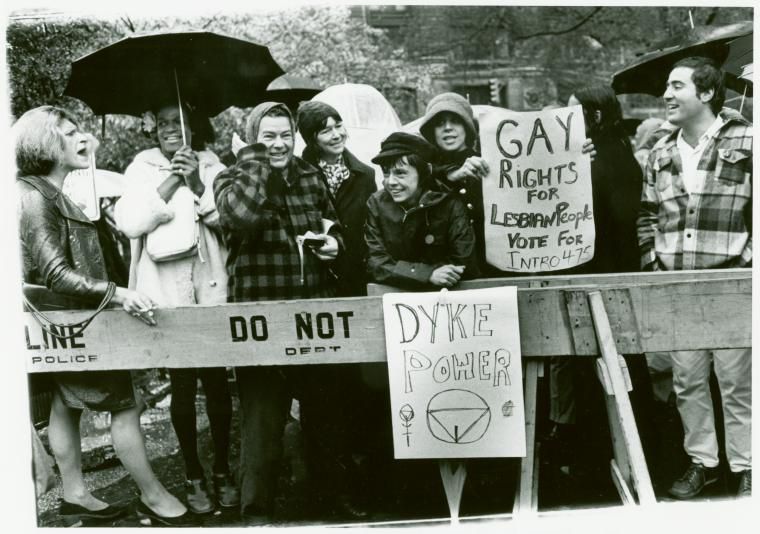This month marks the fiftieth anniversary of LGBTQ Pride. Parades and celebrations will take place around the world, culminating in World Pride in New York, where fifty years ago a police raid on a gay bar triggered the Stonewall Riots, the event that gave rise to the annual Pride festivities. In Commune magazine, M. E. O’Brien looks back on the riots, recalling that they “were initiated and led by the most marginalized of New York City’s working-class queers: homeless youth, Black and Puerto Rican trans women, sex workers, and visibly gender-nonconforming people.” She goes on to describe how the original politics of this event have been diluted and erased, as Pride events have become increasingly corporate, white, and bourgeois. Here’s an excerpt:
Stonewall veterans like Sylvia Ray Rivera and Marsha P. Johnson offer lessons quite different from those found in the potted histories of Pride on offer from mainstream gay rights organizations. Rivera, in particular, understood trans rebellion as an integral part of left, anti-imperialist politics. In 1970, she brought STAR members to a rally organized by Puerto Rican revolutionary group the Young Lords. She tells Les Feinberg of the event:
The protest was against police repression and we decided to join the demonstration with our STAR banner. That was one of the first times the STAR banner was shown in public, where STAR was present as a group. I ended up meeting some of the Young Lords that day. I became one of them. Any time they needed any help, I was always there for the Young Lords. It was just the respect they gave us as human beings. They gave us a lot of respect. It was a fabulous feeling for me to be myself—being part of the Young Lords as a drag queen.
Rivera and Johnson were central to challenging the early contradictions of class and race present within the gay liberation movement. In one surviving video from the 1973 Liberation Day rally—the third annual protest commemorating the Stonewall riots, and what would go on to become the annual Pride march—Rivera faces booing from the audience as she forces her way to the stage. In a glittering one-piece, she challenges the attendees, confronting them with the story of her own experiences of violence:
You all tell me, go and hide my tail between my legs. I will no longer put up with this shit. I have been beaten. I have had my nose broken. I have been thrown in jail. I have lost my job. I have lost my apartment. For gay liberation, and you all treat me this way? What the fuck’s wrong with you all?
The video has circulated in recent years over the internet, embodying decades of acrimonious, but often unspoken, tension around poverty, race, and state violence within gay communities and gay rights organizing, especially where it involves trans people.
From left to right: Sylvia Rivera, Marsha P. Johnson, Jane Vercaine, Barbara Deming, Kady Vandeurs, Carol Grosberg and others lead a protest at City Hall in New York, 1973. Via smithsonianmag.com.
